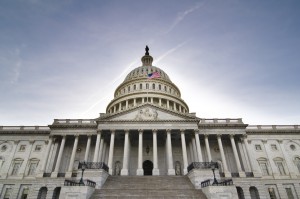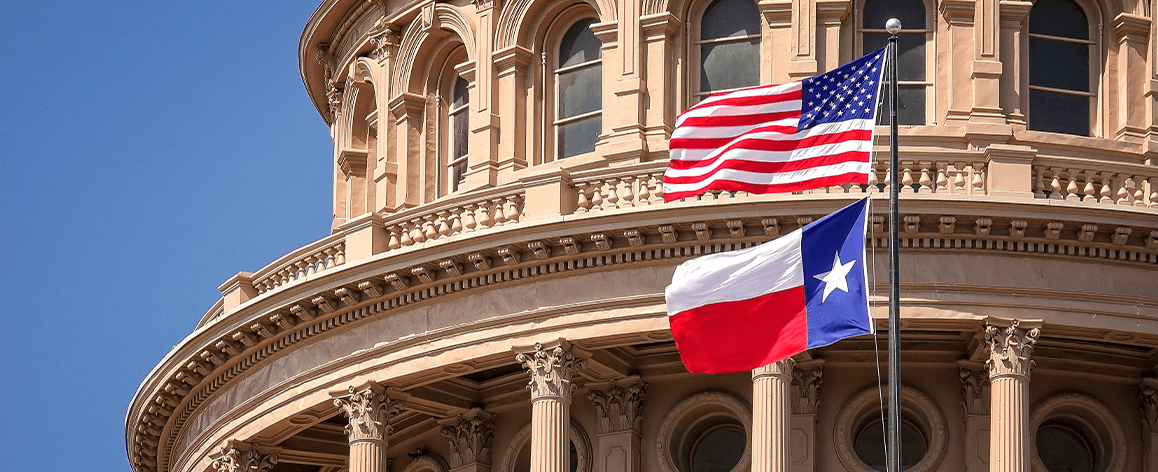Texans in Congress support federal voucher bills as Trump continues privatization push

Date Posted: 3/01/2017
 It probably comes as no surprise to Texans that federal voucher bills are being filed in the U.S. Congress after President Donald Trump campaigned on a $20 billion voucher plan promise. He continued to promote such a plan last night during his first speech to Congress. However, Texans might be surprised to learn that some of their elected representatives are jumping on board as supporters of these pieces of legislation.
It probably comes as no surprise to Texans that federal voucher bills are being filed in the U.S. Congress after President Donald Trump campaigned on a $20 billion voucher plan promise. He continued to promote such a plan last night during his first speech to Congress. However, Texans might be surprised to learn that some of their elected representatives are jumping on board as supporters of these pieces of legislation.
Texan serves as original co-sponsor on House voucher bill
A bill termed the “Choices in Education Act of 2017” was filed in the U.S. House recently with Texas Rep. Pete Olson (R-Sugar Land) as an original co-sponsor of the legislation. H.R. 610 would create a federal voucher program and repeal the Elementary and Secondary Education Act of 1965, which was most recently amended by and is commonly referred to as the Every Student Succeeds Act (ESSA). Instead, the Department of Education’s (ED) authority would be limited to awarding block grants to states that legalize vouchers and follow the federal voucher program requirements. The “Choices in Education Act” voucher would work like this:- ED would distribute block grants to qualified states.
- States would distribute that money to districts based on the number of eligible school children within each district.
- Districts would be responsible for distributing a portion of their funds to parents who choose to enroll their child in a private school or home-school their child. The amount distributed would be equal to the per-student federal funding in each state. Districts would be responsible for distributing funding in a way that ensures money is spent on “appropriate educational expenses.”
- The bill would expand eligibility for the “D.C. Opportunity Scholarship Program,” the federally funded voucher program that distributes funding to students in the District of Columbia only.
- The bill would make funding under the Individuals with Disabilities Education Act (IDEA) portable, meaning qualified students could take their portion to the private or public school of their choice. It would also provide states seed money for establishing a special education voucher program.
- The bill would create the Military Scholarship Program, allowing students living on military bases to use a voucher at the private or public school of their choice. Students would be eligible for the combined cost of tuition, fees, and transportation, with an $8,000 cap for elementary students and $12,000 for secondary students.

Last night during his prime time speech to a joint session of Congress, his first time to address the body, President Donald Trump reiterated his support for vouchers and called on Congress to pass a bill that funds "school choice for disadvantaged youth." He didn't offer additional details on such a plan, adding that "families should be free to choose the public, private, charter, magnet, religious, or home school that is right for them." It has been reported that the White House is considering a tax credit scholarship approach, something neither of the above bills would offer. Again, details on the type of federal tax credit scholarship President Trump might be considering have not been released. (Check out an example of a tax credit scholarship in our post on Lt. Gov. Dan Patrick's voucher bill being considered here in Texas.) In short, tax credit scholarships give taxpaying entities or individuals a break on their taxes in exchange for donations to a voucher fund. The fund is then used to provide vouchers for students to attend private schools or to fund a home-school education. During his campaign, President Trump campaigned on a promise to redirect $20 billion dollars in federal spending to a voucher program.

ATPE members can alert their federal representatives of their opinions on these and other federal voucher bills by logging on to Advocacy Central.
CONVERSATION
RECOMMENDED FOR YOU

02/03/2026
Recap of the January 2026 Texas SBOE meeting
The board discussed curriculum, instructional materials, and educator preparation, ultimately postponing some controversial votes to April.

02/02/2026
Special election results in a dramatic party flip in Texas Senate District 9
Democrat Taylor Rehmet beat Republican Leigh Wambsganss by 17 points in a district that has been held by Republicans for over 30 years.

01/30/2026
Teach the Vote’s Week in Review: Jan. 30, 2026
The State Board of Education debates new required reading lists and postpones a vote until April. Plus: Register to vote in the March primary election by Monday, Feb. 2.

